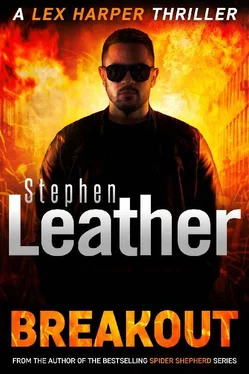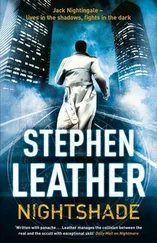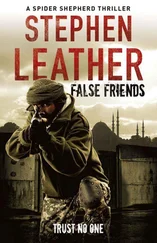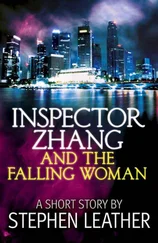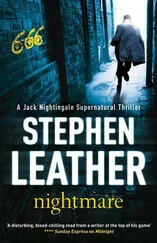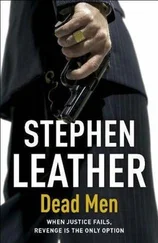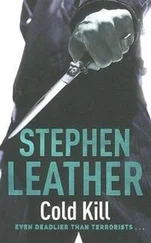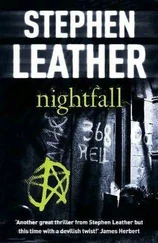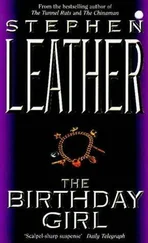It wasn’t an unusual phenomenon around Hereford. At a conservative estimate there were half a dozen bullshitters for every genuine SAS man and the older, more streetwise young women in Hereford spotted him at once for what he was, a first-class specimen of the breed, and either gave him the cold shoulder or took the piss out of him, but a young girl called Myfanwy was much less worldly. The only daughter of a deeply religious family, she had grown up on a farm in the Welsh mountains but was now living with her grandmother in Hereford, while working behind the counter of Scouse’s local newsagent. She believed every tall tale that Scouse told her and after he asked her out, she sat saucer-eyed as he recounted his war stories.
Newly back from his tour of duty in Afghanistan, Harper was still in the Paras, but was on attachment to the SAS in Hereford at the time, and when he met up with Scouse for a drink and a catch up, he introduced him to Myfanwy. Harper was struck by the girl’s naiveté and shy charm, in sharp contrast to the loud, brash personality of her boyfriend, and it struck him straight away that the relationship was unlikely to last long or end happily for her.
Scouse’s life on easy street came to an abrupt end as soon as the guys who had actually passed the SAS Selection process, gained the necessary skills to become part of a Sabre Squadron and then been posted to a tough, demanding and dangerous environment in Afghanistan, returned to discover that Scouse had been busily doing his best to reap the rewards for their efforts among the local girls. In no uncertain terms they let the boss of Training Wing know that Scouse now either had to put up or shut up, and an ultimatum was given to him: either he passed Selection this time or he’d have to be RTU’d - Returned To Unit - back to the Paras.
He immediately re-applied for the next Selection course, but once more it came as no surprise to anybody - perhaps not even to Scouse this time - that he only lasted a couple of days before once more retiring with a self-proclaimed injury that the doctor who examined him failed to detect. However, moving with more alacrity than he’d ever displayed during Selection, Scouse then managed to resign from the Army before the SAS could complete the formal process and the paperwork to get rid of him.
Out of work but still full of wind and piss, Scouse reckoned - correctly, as it turned out - that he now had enough knowledge of the SAS to bluff his way along, like many others who were already working the system. Scouse then talked his way onto ‘The Circuit’ - the unofficial network of ex-military men, mostly Special Forces, who shared knowledge of work as bodyguards, mercenaries and soldiers of fortune around the globe.
He spent a further happy time, mostly doing body-guarding for clients around London, which often involved nothing much more arduous than carrying the Harrods’ shopping bags for the wives and daughters of oil sheikhs, billionaires and hedge fund managers. He also found time to make the occasional foray back to Hereford to large it up about how well he was doing in the rarefied air of celebs and foreign royalty. He impressed few listeners apart from Myfanwy, who would hang on his every word. Lex was surprised that the relationship had lasted and was even more surprised to hear that Scouse had a daughter.
Harper finished exercising and went up to his flat where he showered and changed into a clean Polo shirt and Diesel jeans. He made himself a cup of coffee, sat on his balcony and phoned an old mate who was working on the Circuit. Like Harper and Scouse, Jinx was an ex-Para. He’d quit the regiment after serving for fifteen years, including active service in Iraq and Afghanistan, but soon found that he missed the mateship, shared identity and common purpose of a fighting unit, and the sheer adrenalin rush of combat. Unable to settle back into life on Civvy Street, he had gone on the Circuit, working mainly for civilian contractors who were hiring armed guards to safeguard their operations in combat zones or volatile Third World countries.
After catching up on what they had been doing - at least as far as they were able to discuss it - Harper brought the conversation round to Scouse and Risk Reduction Inc.
‘I’ve not worked for them personally,’ Jinx said, ‘but I’ve heard mixed reports about them. They were fairly late in the field - well after the big British and American private security companies had got going - and I think they grew by taking on the jobs that the big boys avoided. So although their pay rates appear pretty high, the money they pay is certainly no more and maybe a good bit less than the jobs actually merit.’
‘Why’s that?’ Harper said.
‘Because they’re often operating in some of the most problematic areas in the world. I mean there’s risk in any Kidnap and Ransom operation, but going into the Colombian jungles to try to do deals with renegade bands of ex-FARC guerrillas, or trying to haggle over ransom payments with Mexican drug cartels is not work I’d be willing to take on for any amount of money.’
‘And that’s what their operatives do?’
‘That’s what some of them do anyway. It’s not impossible, but like any op, you’d need to be fully up to speed on what you were dealing with, and have the right kit and all the back-up you could need, and then maybe you’d be okay. But you know what they say: if you spin a roulette wheel enough times, you’re going to wind up losing in the end.’
‘The guy I’m looking for was never big on research or preparation,’ Harper said. ‘He was definitely much more of a just do it and hope for the best kind of guy.’
‘Then he was definitely in the wrong line of work.’
‘Something I also told him about most of his previous jobs, without any obvious effect. Thanks Jinx, I owe you one.’
‘Forget it Lex, what are old mates for?’
Harper’s next call was to the London number of Risk Reduction Inc, but the man he was put through to, speaking in a weary-sounding public school and Oxbridge drawl, told him that it was company policy only to divulge information about their activities to those who are personally known to them and certainly not over the phone
Harper ended the call. He’d already decided that he was going to go to London, and hadn’t expected to get much over the phone, but the man’s attitude was still annoying. He went online and booked a flight from Bangkok to Paris, departing the next morning. He never liked flying directly into London and usually either went via Paris and the Eurostar or to Dublin and then taking the ferry over to Holyhead. He planned to travel light with just a washbag, a change of clothes and his phone in a backpack. Anything else he needed he could buy on his travels.
CHAPTER 3
Harper arrived at St Pancras station at just after eleven o’clock at night. He walked to King’s Cross and checked into a cheap, no questions asked hotel, paying cash for his room. There was no real need for hyper-security at this stage of this op but old habits die hard and Harper made it a policy always to be a ‘grey man’, never drawing attention to himself by driving flash cars or staying in top of the range hotels. Nor did he ever use credit cards or traceable ID or mobile phones, so there was never a paper trail nor an electronic one that could be used to track his movements and activities. He’d eaten on the Eurostar so he showered and went straight to bed.
He woke at eight, had breakfast and two coffees in a local café, then bought a burner phone and called the London office of Risk Reduction Inc to make an appointment to see the manager later that morning. The office was located in a discreet, high-end block on the south bank of the Thames, close to MI6’s marble and glass Lubianka.
Читать дальше
